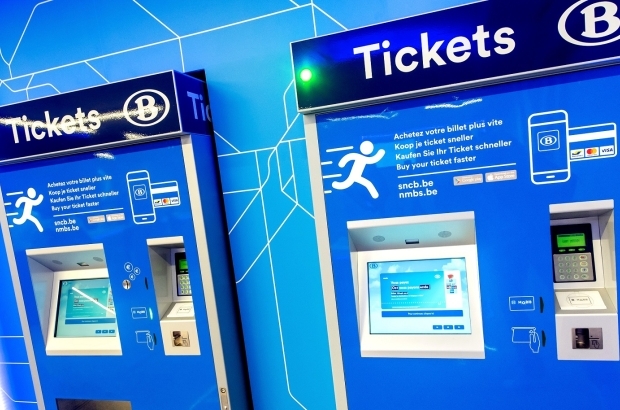- Daily & Weekly newsletters
- Buy & download The Bulletin
- Comment on our articles
SNCB introduces new fare structure: 'biggest reform in 30 years'
Belgian railway operator SNCB will launch its new fare structure on Wednesday 15 October, calling it the "biggest reform" of ticket pricing in 30 years.
Tickets will be cheaper overall, RTBF reports, especially during off-peak hours and on weekends, as well as for frequent travellers, due to the introduction of a brand new system: the Train+ card.
Another price-reducing factor is that all fares will now be calculated on the basis of the distance travelled. The maximum price of a train ticket will be reduced by 20%, as the highest fare will now be calculated on the basis of 120km instead of 150km.
As a result, a second-class train journey for an adult (aged 26-64) will cost a maximum of €20.90 instead of the current €26.
These new calculations per kilometre will have a particular impact on youth and senior tickets, which will be replaced by a 40% discount on all journeys using the new Train+ card.
The "large family" ticket will also be discontinued and replaced with greater discounts for children and young people.
SNCB director of customer services Marc Huybrechts said this new fare offer is an important and positive change for passengers. According to the railway company’s calculations, 80% of journeys will cost less or the same as before the new fare structure.
The changes have one main objective: to increase the number of passengers by 30% by 2032, a goal set by the public service contract between the national railway operator and the Belgian state.
The Train+ card allows all passengers an additional 40% discount during off-peak hours and on weekends, as well as a maximum advantageous fare during peak hours.
Peak hours are from Monday to Friday for journeys between 6.01 and 8:59 and between 16.01 and 17.59. In the event of a delay, the scheduled time initially displayed on the app or on the station boards will apply, not the time calculated with the delay.
This new offer will replace the youth, standard and "local multi" passes, which have seen declining popularity in recent years and, according to Huybrechts, no longer meet the needs of travellers.
The Train+ will be available in monthly formats (€4 for young people, senior citizens and those receiving increased assistance, €6 for adults aged 26 to 64) or annual formats (€32 and €48). It will be nominative - meaning it cannot be shared with other people - and can be obtained via the app or from a ticket machine at a station, where it can be loaded onto a Mobib card or received in paper form with a QR code.
To mark its launch, Train+ will be available at half price until 4 January 2026 inclusive.
Passengers can estimate how much they can save with the Train+ card via the SNCB website.
To keep passengers as well informed as possible, SNCB will deploy more than 250 customer service agents in stations across the country to communicate about the new offer and answer passengers' questions.
A "mini-group" fare will also be introduced for people travelling in small groups of four to 14 people.
During weekends and off-peak hours, such groups will also benefit from a 40% discount. Large groups of 15 or more people will continue to enjoy a 60% discount if they book their journey in advance, as is currently the case.
There is also a small change to first class, which will now be open to young people and those receiving mobility assistance. The surcharge for first class will also be calculated based on the distance travelled.
The bicycle surcharge will also be changed: instead of paying €4 per journey, passengers will pay €3 during off-peak hours and on weekends, and €5 during peak hours. Folding bicycles are still allowed without surcharge at any time of day.
Products purchased before the launch date of the new changes on 15 October will remain valid until their expiry date.
Peter Meukens, president of the Flemish public transport users; association TreinTramBus, called the new structure "much more complex than expected", noting the differences between off-peak and peak hours.
TreinTramBus also fears that the distinction between off-peak and peak hours will give rise to discussions. Meukens points out that a train could thus be considered to be running during peak hours when it departs from Brussels-Midi, while passengers boarding a little further away – at Brussels-Central, for example – would be taking the same train during off-peak hours.
SNCB must also, along with all other Belgian transport companies, come up with a proposal for a joint ticket by spring.
The idea is to come up with a pay-as-you-go system by spring 2026 that would enable passengers to use different transport companies with a single ticket without too much hassle.
“The [mobility] ministers agree that passengers should not incur additional costs when changing modes of transport,” reads a statement from Belgium’s four mobility ministers.
They are also asking public transport companies to investigate a harmonisation of fare structures and commercial terms and conditions.



















